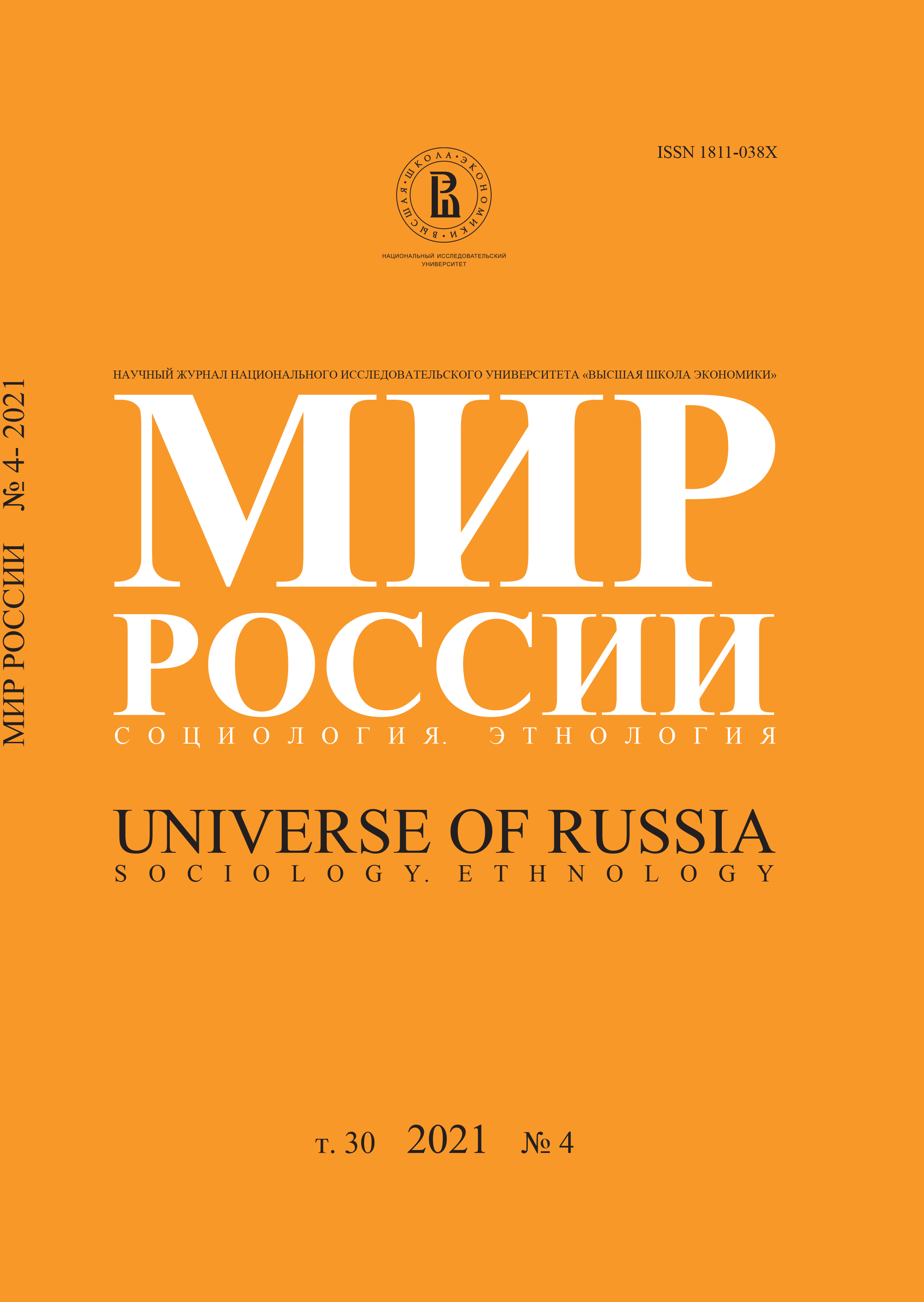The Periodization of Soviet and Post-Soviet Ethnology Based on Dissertation Topics (1934–2016)
Abstract
Drawing on Richard Whitley’s idea of social institutionalization, the authors distinguish three stages in the history of Soviet and Post-Soviet ethnology: the imperial stage,
including the pre-institutional period (1724–1844) and period of early institutionalization (1845–1917); the Soviet stage, with periods of voluntary “Marxization” (1917/18–1929/32), the eradication of methodological pluralism (1929/32–1953), the Tolstov period (1954–1966/67), and the Bromley period (1966/67–1991); and the post-Soviet stage, divided into the period of crisis and hope (1992–2004) and the period of thematic and theoretical diversification (since 2005). This article tests this hypothesis about periodization. After the October revolution of 1917, the Bolshevik government canceled the prerevolutionary system of academic degrees in Russia. A new system of degrees was reestablished in the Soviet Union only in 1934. The data for the study are taken mainly from the abstracts of the relevant dissertations collected in the libraries of St. Petersburg and Kyiv, as well as from library catalogues. Altogether the data include information about 2,872 dissertations in ethnology completed and defended in the USSR and post-Soviet countries in 1934–2016. By analyzing the content of the dissertations, the authors reveal 64 thematic categories. The authors test their hypothesis by identifying the relationships between the time periods and the thematic preferences of dissertations using methods such as the analysis of cross-tabulations, cluster analysis, and a time series segmentation algorithm. The proposed periodization for the history of Soviet and Russian ethnology is largely confirmed.






